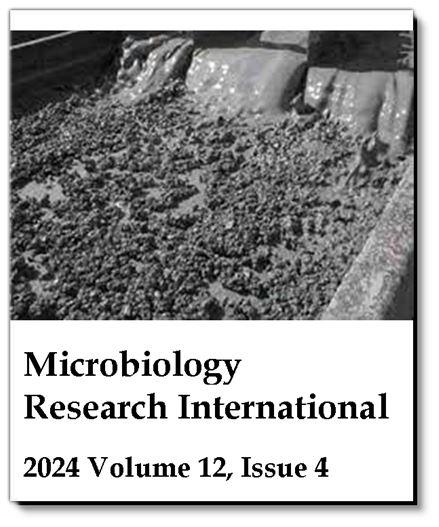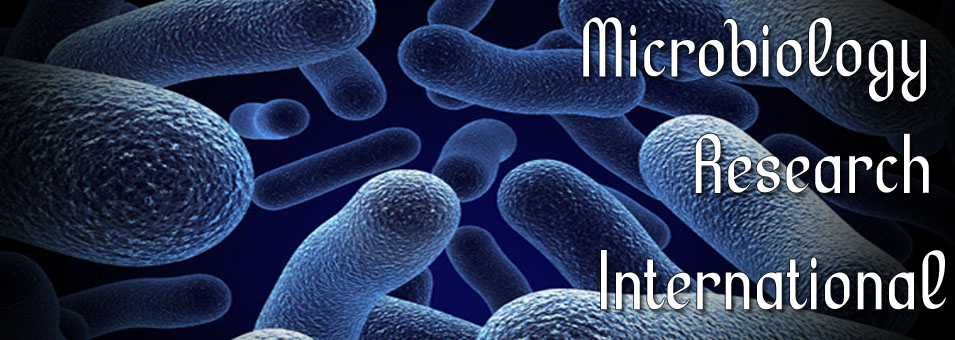Enhanced biodegradation of water-based drilling fluids in marine water
Mfonobong Bernard Effiong, Renner Renner Nrior and Owhonka AleruchiMicrobiology Research International
Published: October 4 2024
Volume 12, Issue 4
Pages 98-109
Abstract
Drilling fluids/mud is an essential component of the rotary drilling process used to lubricate and cool down the drilling bit during the operation of oil and gas on land and in offshore environments. Disposing of drilling fluids into marine water ecosystems can lead to pollution, affecting aquatic life and water quality. Enhanced biodegradation of drilling fluids: water-base drilling fluid (WBF) in marine water (MW) using different bioaugmenting organisms (Pseudomonas aeruginosa strain EB38 and Bacillus safensis strain UIS0051) and biostimulating agent: fish waste (FW) was investigated. The rate of biodegradation was estimated from the percentage (%) reduction of Total Hydrocarbon Content (THC) with percentage (%) efficiency of bioaugmenting organisms; Pseudomonas (Pse), Bacillus (Bac) and biostimulating agent; fish waste (FW) from day 1 to the last day (28). The study employed a Randomized Complete Block Design (RCBD) with 15 experimental setups, each with a final volume of 1000 ml. After the contamination, bioaugmenting organisms and biostimulating agents were applied. Some physicochemical and microbiological parameters of the water sample were determined before and after contamination. Physicochemical parameters monitored were temperature, pH, Total Dissolved Solid (TDS), Dissolved Oxygen (DO), Electrical Conductivity (EC), Biochemical Oxygen Demand (BOD), Nitrate, Phosphate, Sulphate, Chemical Oxygen Demand (COD) Total Hydrocarbon Content (THC), while microbiological characteristics were total heterotrophic bacteria (THB), total fungi count (TFC), Drilling Fluids Utilizing Fungi (DFUF) and Drilling Fluids Utilizing Bacteria (DFUB). From the initial THC contamination value of 3282.7mg/L (MW+WBF), the amount remediated and % biodegradation of THC at 28 days in the different treatment set up in decreasing order is as follows: MW+WBF+Bac (3236.67mg/L; 98.60%) > MW+WBF+FW+Bac (3224.67 mg/L; 98.23%) > MW+WBF+Pse (3198.67mg/L; 97.32%) > MW+WBF+FW+BAC+PSE (3186.67mg/L; 97.08%) > MW+WBF+FW+PSE (3174mg/L; 96.69%) and MW+WBF+FW (3123.34mg/L; 95.15%). The results suggest that microbial inoculants and fish waste can be effective amendments for enhancing the biodegradation of THC in drilling fluids, with potential applications in environmental remediation.
Keywords: Drilling fluid, marine water, bioaugmenting organisms, fish waste.
Full Text PDF
